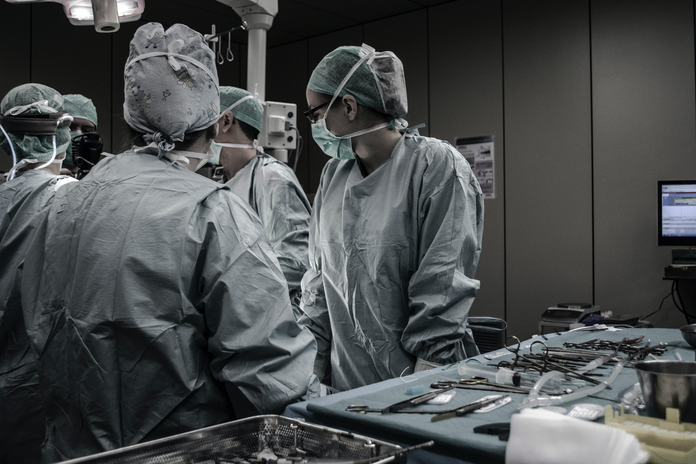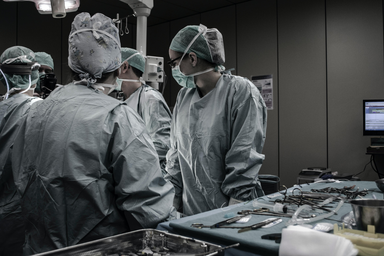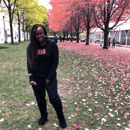In 2019, statistics showed that 56.2 percent of active physicians identified as White, 17.1 percent of active physicians identified as Asian, 5.8 percent of active physicians identified as Hispanic and 5.0 percent of active physicians identified as Black or African American. To begin to minimize this gap between minorities and medicine, many schools have begun to develop clubs that offer the support and resources necessary when being a minority pre-medical student. This week I had the opportunity to interview Jasmine Rubio, the president of MAPS, whose mission is all about helping culturally diverse students in their pursuit of going into professional health and medical programs.
HerCampus (HC): What is MAPS?
Jasmine Rubio (JR): MAPS is an acronym The Minority Association of Pre-Medical Students. It is a pre-health organization on campus created to be a support system for culturally diverse students who are studying to go into professional health and medical programs. It is part of a larger national membership that offers academic and professional resources, hosts national medical conferences and provides leadership and service opportunities to its members making them competitive candidates for any post-baccalaureate degree.
HC: What is your current position in MAPS?
JR: I currently serve as president of the Florida State University chapter of MAPS.
HC: What made you join this organization and what does it mean to you?
JR: I originally joined MAPS because I felt my path to medicine needed more structure and guidance. Apart from that, I also felt very dissociated from my classmates because we did not have many shared life experiences or similar difficulties when it came to studying at a four-year university. When I discovered MAPS, I met a group of students who were equally driven as I, but with their own unique stories that motivated them. Some members in MAPS hold multiple jobs, take care of their family members, are the first in their family to be in college, struggle with food insecurity and have other barriers to success but are unstirred by them. The resilience, the diversity and the community MAPS fosters are difficult to explain in short words. However, MAPS is most meaningful to me because of the friendships and direction I have earned in my time here.
HC: What has been your favorite part about being president and being a part of MAPS?
JR: Being president has awarded me many opportunities I am grateful for. I love that I can serve others who may feel the same way I did when I first joined MAPS. Yet, my favorite piece of MAPS is each of the members who have different talents, who make every moment full of joy and laughter and motivate one another to succeed academically and personally.
HC: Why do you think clubs like MAPS is important?
JR: MAPS not only enhances diversity in medicine but also provides students from different backgrounds a setting to grow professionally, create bonds and graduate.
HC: Why should more people join MAPS?
JR: More people should join MAPS because it is an established organization that offers its members the guidance many first-generation and culturally diverse students can use to enhance their college experience. Through increased exposure to professions in the healthcare field and a strong general body, anyone interested in MAPS will be welcomed into a very supportive family.
HC: What has been your favorite presentation/event hosted by MAPS?
JR: My favorite presentation by far has been the medical student/physician assistant student panel I programmed last October. Past MAPS members who now attend medical schools such as the University of Alabama, Brown, Baylor, FSU and Brody gave insight into the application process, life as an undergrad and other medical school related questions our members posed. It was a successful event in collaboration with FAMU’s MAPS chapter that had a great turnout and an event from which our members say they benefitted the most too.
HC: What are some challenges you faced as a minority woman pursuing a career in medicine and how have MAPS helped?
JR: Representation in the medical field for Latina women is below two percent. Aside from this disturbing statistic, there are obstacles in my network to physicians or individuals with a higher education. Even my perspective on what a career in medicine would look like. My cultural traditions also make it difficult to pursue higher education when as a woman I am expected to bear children at a young age and not be overly educated. MAPS has not only granted me access to interview physicians and medical students, but it has also introduced me to supportive resources on campus, community service opportunities and other women with similar difficulties who are determined to succeed as future physicians.
HC: Who has been the most influential person in your life that you’ve met through MAPS (whether that career-wise or personally)?
JR: The most influential person that I have met through MAPS is hands down Dr. Miranda Mack. On a professional stage, she has helped me clearly define my path to medical school and sharpened my leadership skills. She has taught me valuable lessons on empathy, following my timing, defining success under my own terms and the value of releasing control. Without her guidance, I would fall short in my mark as president of MAPS and developing into a future physician. Thank you, Dr. Mack.
If you’re interested in joining MAPS, you can find out more information on their Instagram!
Want to see more HCFSU? Be sure to like us on Facebook and follow us on Instagram, Twitter, TikTok, Youtube and Pinterest!




